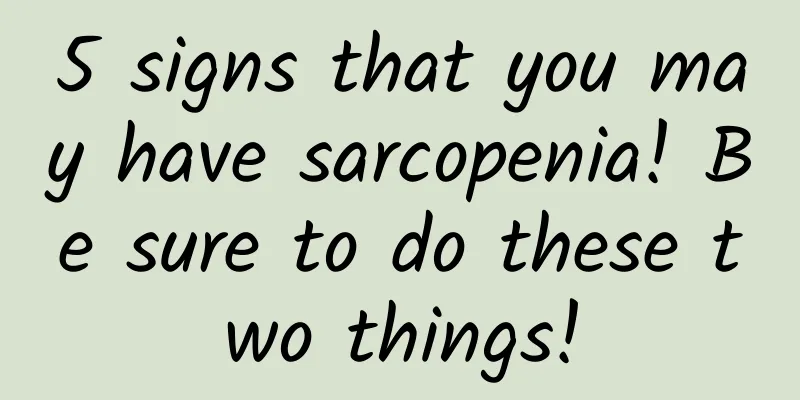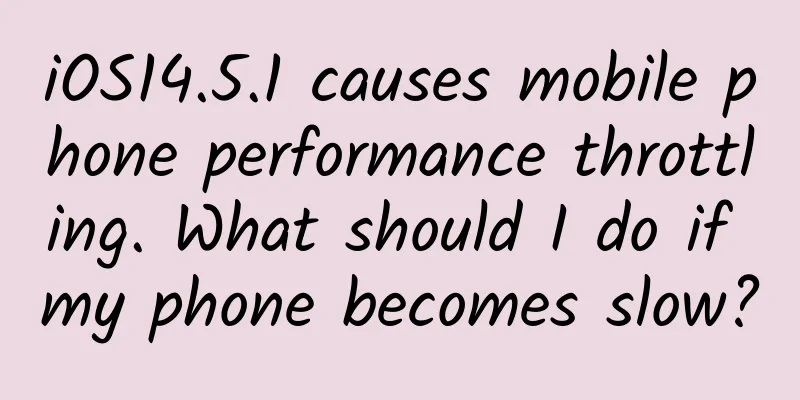The night of White Dew and Autumnal Equinox is colder every night! What should I do if my nose is suffering during the season change?

|
"On the nights of White Dew and Autumnal Equinox, it gets colder each night." Every time the seasons change, patients with allergic rhinitis become miserable, and many severe patients have it even worse. The latest "Guidelines for the Diagnosis and Treatment of Allergic Rhinitis in China (2022, Revised Edition)" shows that the national prevalence of allergic rhinitis has increased from 11.1% in 2005 to 17.6%, among which Shanghai is "top" with a prevalence of 23.9%. Nationwide, August and September are also the peak months for patients to visit the doctor throughout the year. Of course, it can be seen from this guide that its formal name is allergic rhinitis, but for convenience, we generally use the familiar name-allergic rhinitis. When seeing patients in the outpatient clinic, some patients with severe allergic rhinitis have their lives seriously affected, so the first sentence is often: "Doctor, can you do a radical surgery for me to get rid of it once and for all?" However, our otolaryngologists are generally more cautious and will refuse direct surgical treatment in most cases. Is there any surgery to treat allergic rhinitis? Of course there is. There are many mature surgical treatments for allergic rhinitis. They can be roughly divided into two types. One is surgery to improve nasal ventilation function, such as inferior turbinate surgery and nasal septum correction surgery, and the other is nerve cutting surgery to reduce the hyperresponsiveness of the nasal mucosa. Let's talk about the first category first. The biggest problem for most patients with severe allergic rhinitis is actually persistent nasal congestion, because although symptoms such as sneezing, runny nose, and nasal itching are frequent, they are not all the time, and most of them can be tolerated. But nasal congestion is different. This symptom cannot be tolerated. Many patients with severe rhinitis have been so serious that they have persistent nasal congestion, and their noses are basically blocked. And it's okay during the day, but at night, nasal congestion will seriously affect sleep. In the long run, it will make people crazy and easily lead to various emotional disorders. Moreover, among these symptoms of allergic rhinitis, nasal congestion is the best improved after surgery. This is also easy to understand. The causes of nasal congestion are nothing more than hypertrophy of the nasal concha and deviated nasal septum. It's like a road that is often congested. If it is dredged and expanded, the effect will be immediate. The second type of surgery is commonly performed with pterygoid nerve branch resection and anterior ethmoid nerve resection, which blocks the parasympathetic nerves that control the nasal cavity, reduces the sensitivity of the nasal mucosa and reduces glandular secretion. It sounds difficult to understand, but the principle is not complicated. The autonomic nervous system in the nose (mainly the parasympathetic nerves) is like a cleaning spray system with automatic detection capabilities. Once dirt enters the nose, the parasympathetic nerves issue instructions to direct a large number of glandular secretions on the mucosa, and nasal mucus is generated. Under normal circumstances, this system helps us remove foreign invaders such as dust and bacteria, but this system of patients with allergic rhinitis is like a "crazy robot" that has lost control. It starts at every turn and is overly sensitive, so it is named "allergic rhinitis." Therefore, our surgical method is to find the "control system" of allergies and destroy it. For example, the anterior ethmoid nerve resection commonly used in clinical practice is to destroy the anterior ethmoid nerve that controls the nasal mucosal reflex by plasma ablation or electrocoagulation, so that the "crazy robot" is short-circuited and paralyzed. This surgery is effective for symptoms such as nasal itching, sneezing, and runny nose. Since the surgery is so effective, why are otolaryngologists generally so cautious about it? Because most patients with severe allergic rhinitis can be improved through regular and active drug treatment, and surgery is only an auxiliary means, or a last resort treatment method. Except for a very small number of patients with special allergic constitutions, many patients with severe allergic rhinitis have not received regular and effective treatment for a long time, and have gradually developed from mild to severe. Many friends like to procrastinate when the symptoms are mild, and always want to cure them all at once when the symptoms are severe. With this idea in mind, surgery may not be a good choice, because surgery is only a symptomatic treatment, and long-term local medication may be required after surgery. It can be seen that the treatment of allergic rhinitis cannot be without long-term treatment. Therefore, friends with severe allergic rhinitis should pay attention to the combination of prevention and treatment and persevere. Whether to have surgery or not, listen to the advice of professional otolaryngologists before making a decision. |
>>: Is your child always procrastinating? The real reason is not as simple as you think
Recommend
Can wood be worth a fortune? How to identify wood at a glance?
Not long ago, the water level of the Jialing Rive...
Information flow advertising: Before you fight with the data, think about your purpose
Let me first tell you a real case we received: Xi...
How to create a hit product on Xiaohongshu?
If you want to increase the traffic of your Xiaoh...
Notes on changes from iOS 8 to iOS 9
[[150713]] Here we will introduce some changes an...
Why is the scent of osmanthus so difficult to replicate?
This autumn, I was wrapped tightly in the fragran...
How can traffic be doubled relying solely on content? It's time to think about your KPIs!
The golden age of short videos Why do we say that...
The 4-year evolution of WeChat H5 marketing: from .ppt to .avi (classic case collection + in-depth analysis)
“H5 is no longer good!” “H5 has been made into a ...
The singer died of oral cancer at the age of 36! Cancer caused by chewing is disfiguring and fatal
Recently, the news that #36-year-old singer Fu So...
What do all those awesome words that APP promoters always say mean? Tips for beginners!
Recently, several new people came to the company,...
How to become a legendary full-stack engineer
[[134501]] Make a simple app like this: A weather...
What? Asteroids also have osteoporosis?
As people age, if they do not pay attention to ca...
Counterpoint: Intel's revenue will drop by more than 30% from 2021 to 2024
Intel's revenue plummeted by more than 30% be...
What does the time depth isolation experiment that drives people crazy want to prove? Does time really exist?
Recently, there has been a lot of discussion onli...
Why is no one buying products sold on Douyin live streaming?
During the 2019 Double 11 shopping festival, Taob...
What is the unknown fate of shared bicycles?
The shared bicycle industry has been in the news r...









